I’m truly excited to have the chance to chat with Eric, a traveler and adventurer whose journey I’ve been following with great admiration. His updates on Instagram are always inspiring, a true invitation to explore and dream big. Today, we’ll learn more about his story, his connection to bicycles, and the sense of adventure that accompanies him on his incredible travels. Eric shares how an old school mtb steel bike can become a faithful companion and how every pedal stroke is a step toward freedom and discovery.
Hey Eric, tell us about yourself. What was your childhood like, and how did your love for bicycles and adventure develop?
Hey Emanuele, it’s a pleasure to be here with you! I grew up in a small village in Germany with 250 people and there was not much traffic around back then. I learned how to cycle quite early and the bike was the most natural choice for us kids to get around and do stuff. By the age of 10 I went on to explore the other villages in my area and was already captivated by the idea that the bike means freedom of transportation and when I was about 14 my dad let me use his old steel road bike. From that moment on I extended my short day trips as far as my parents allowed me. But they were cool about it and trusted me that I’ll come home safely. So I kinda used my bike everyday, visiting friends and just spending my free time cycling around and exploring.
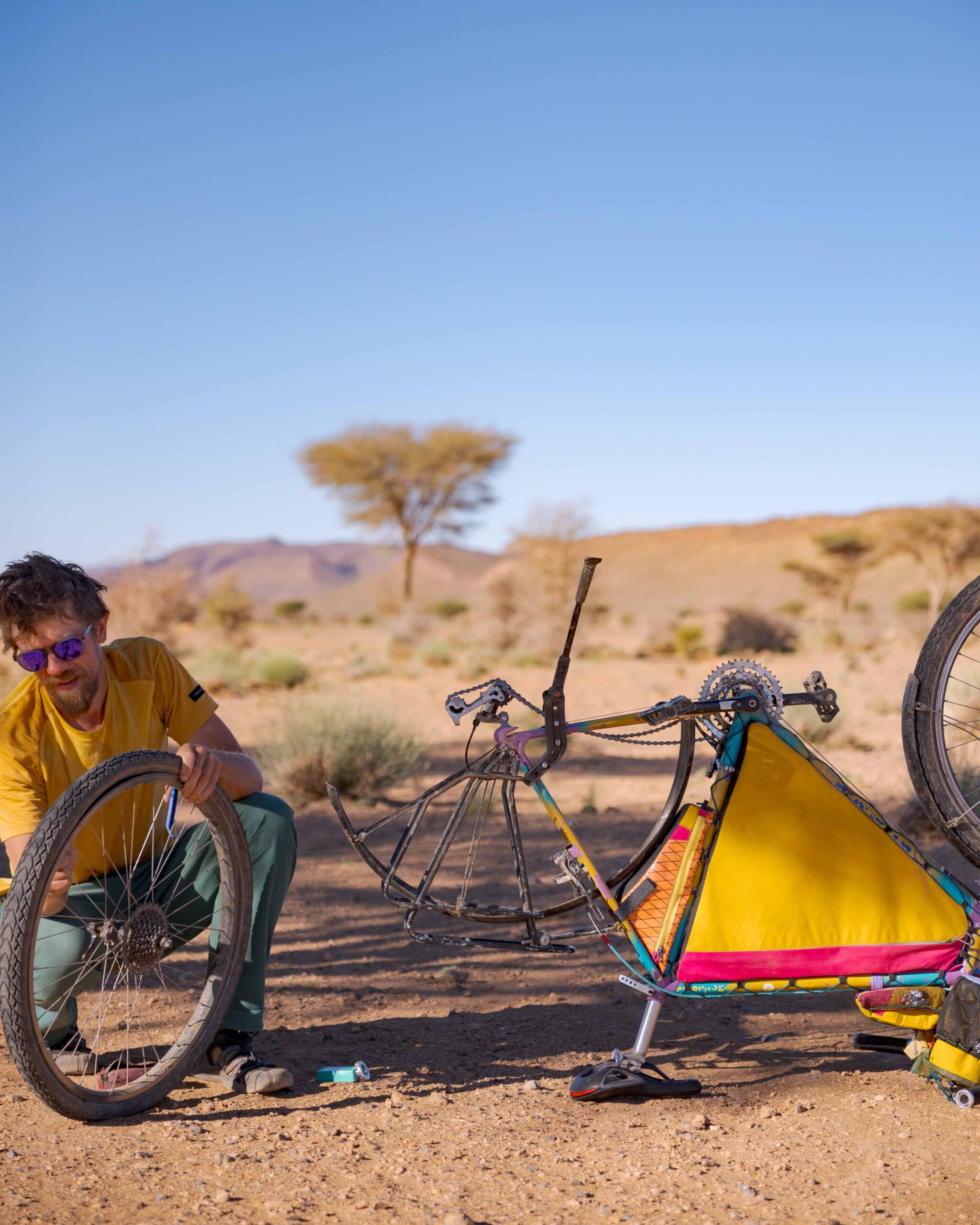
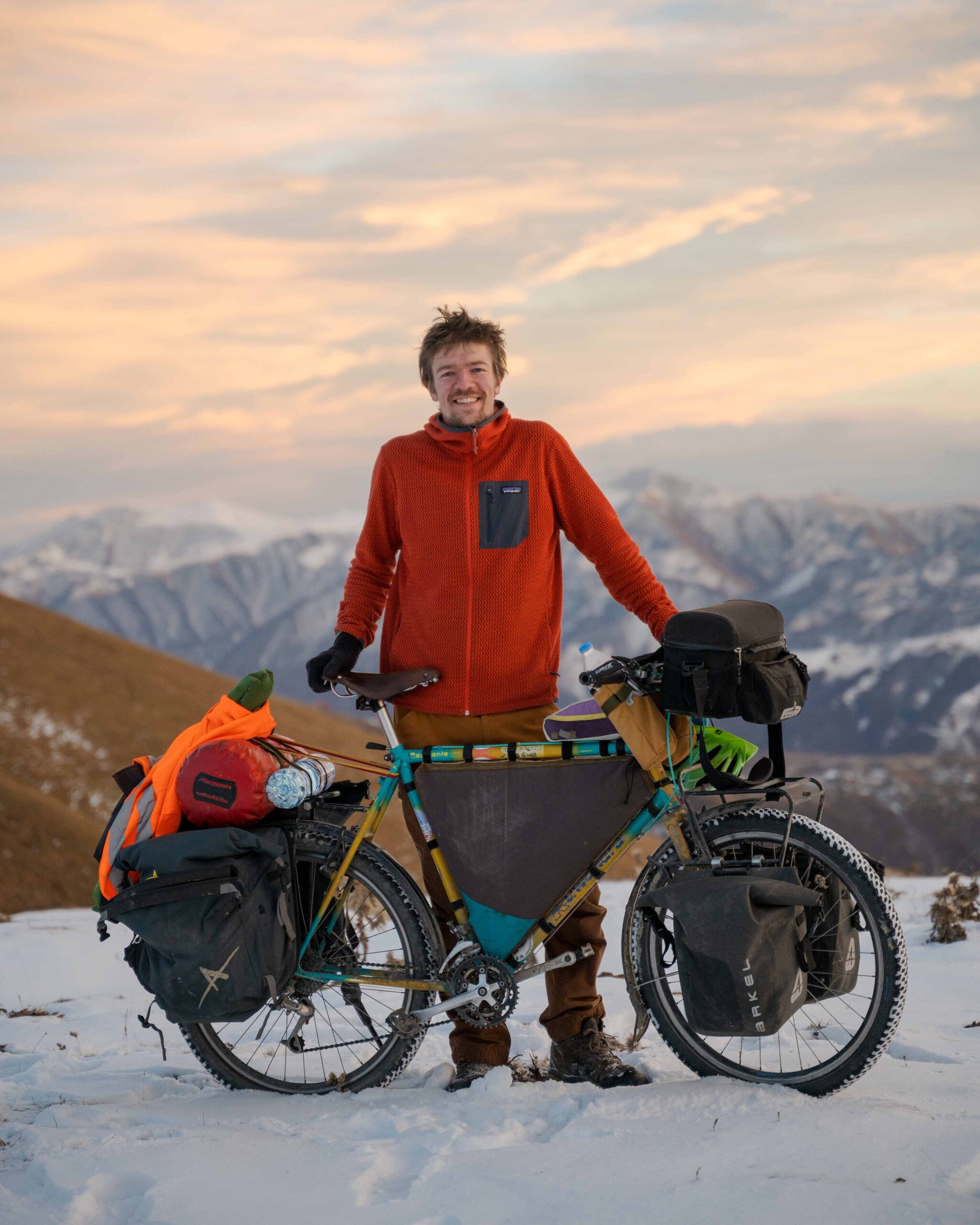
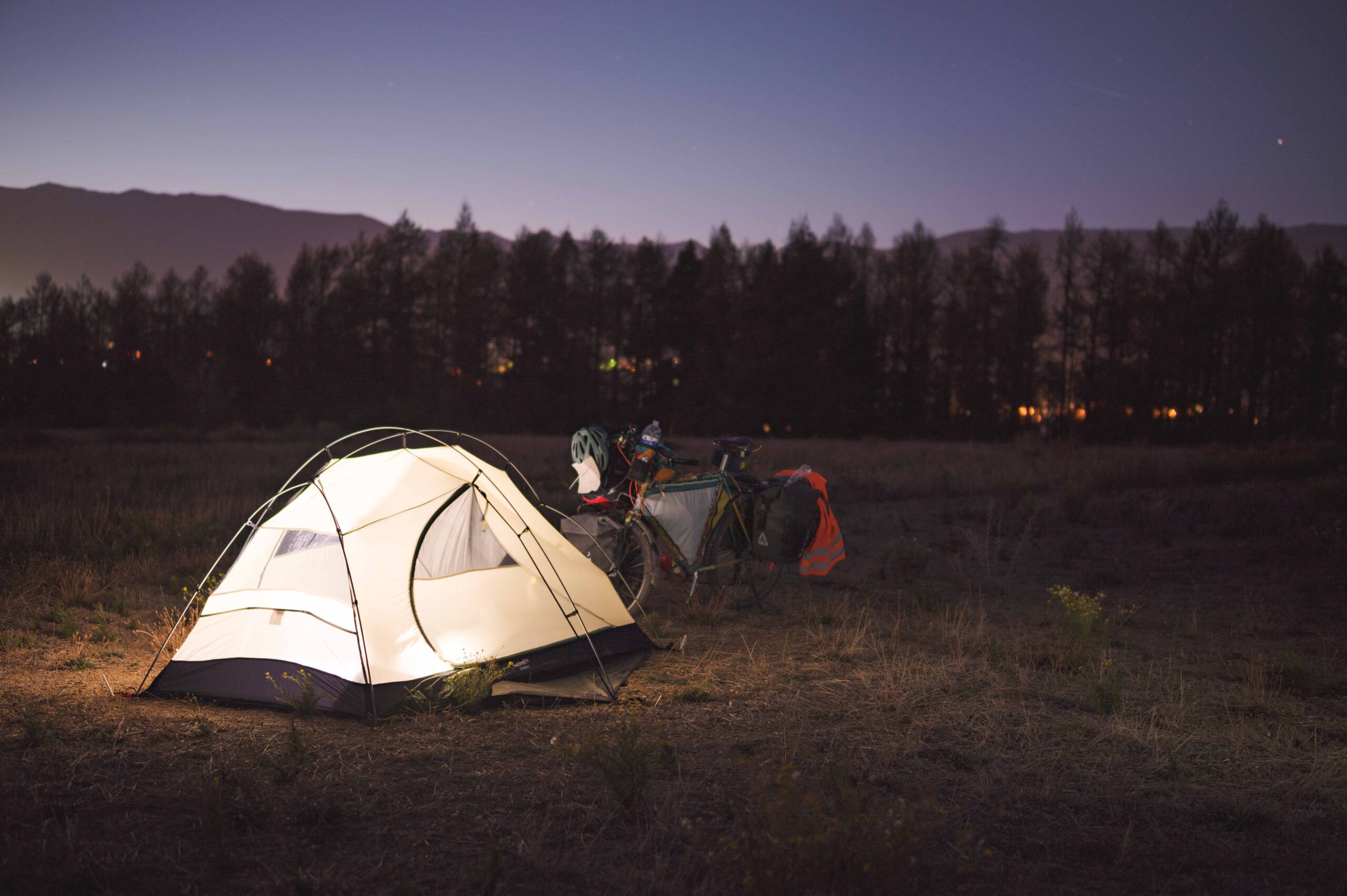
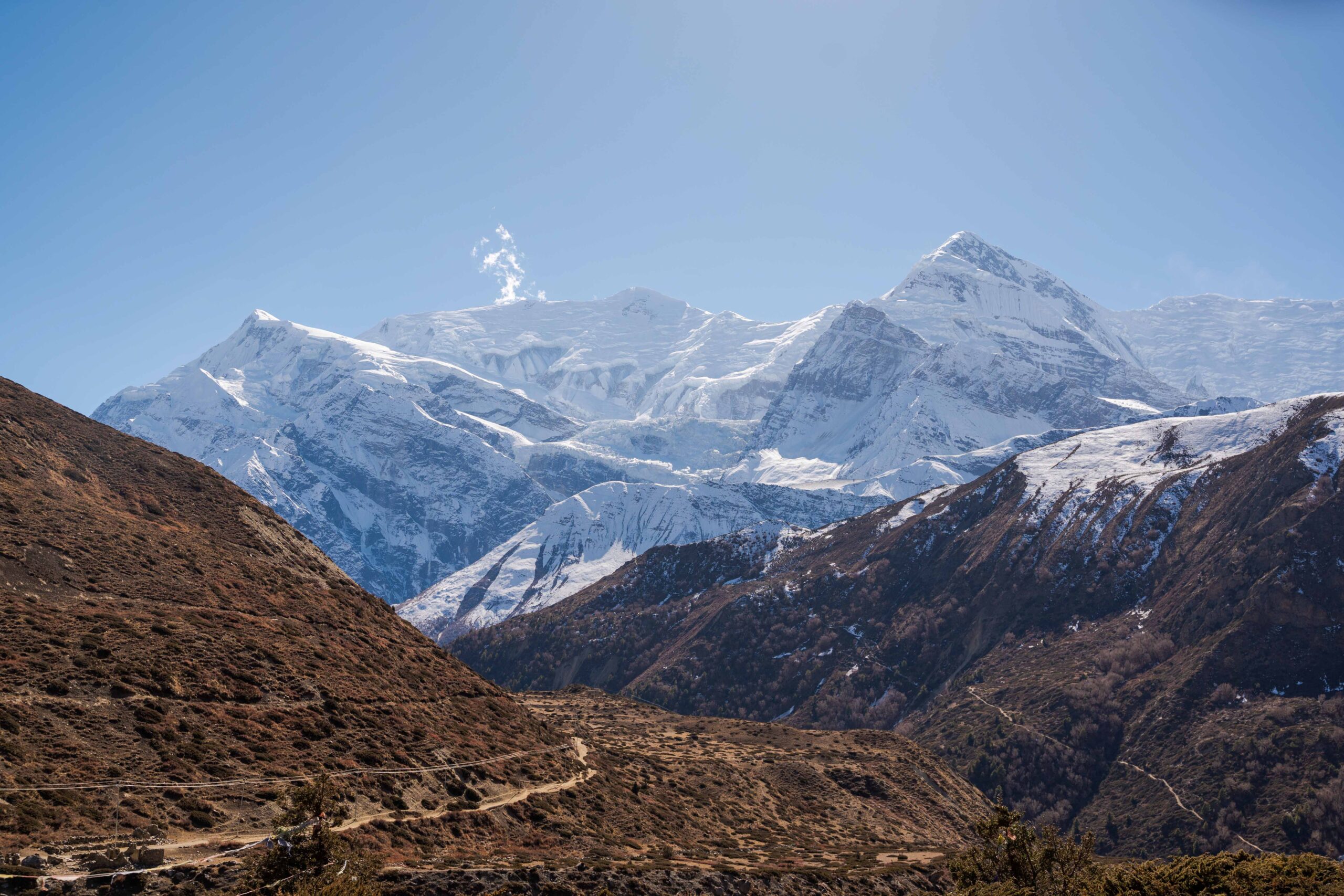
"The hardest part is to start and to stop. Everything in between is in flow and will come naturally."
What was your first trip? What motivated you to set off? Is there a specific experience or moment that inspired you?
After I finished school I read in a magazine which ended up randomly in my hand about crossing the alps by bike and from that moment on I thought that this would be a cool adventure before I’d start to study. Some people around me told me that it’s impossible and this kinda sparked my curiosity to try it even more. So I went for a 2 week long adventure following the Via Claudia Augusta from Donauwörth to Verona and loved it very much. In the next years I cycled with my band twice down to Italy with trailers behind, loaded with instruments and we played music in the streets along the way to finance the trip. Eventually I somehow got hooked and started thinking: “What if I don’t need to return after a few weeks and could just continue?” That’s how the idea of travelling longer distances came into place.
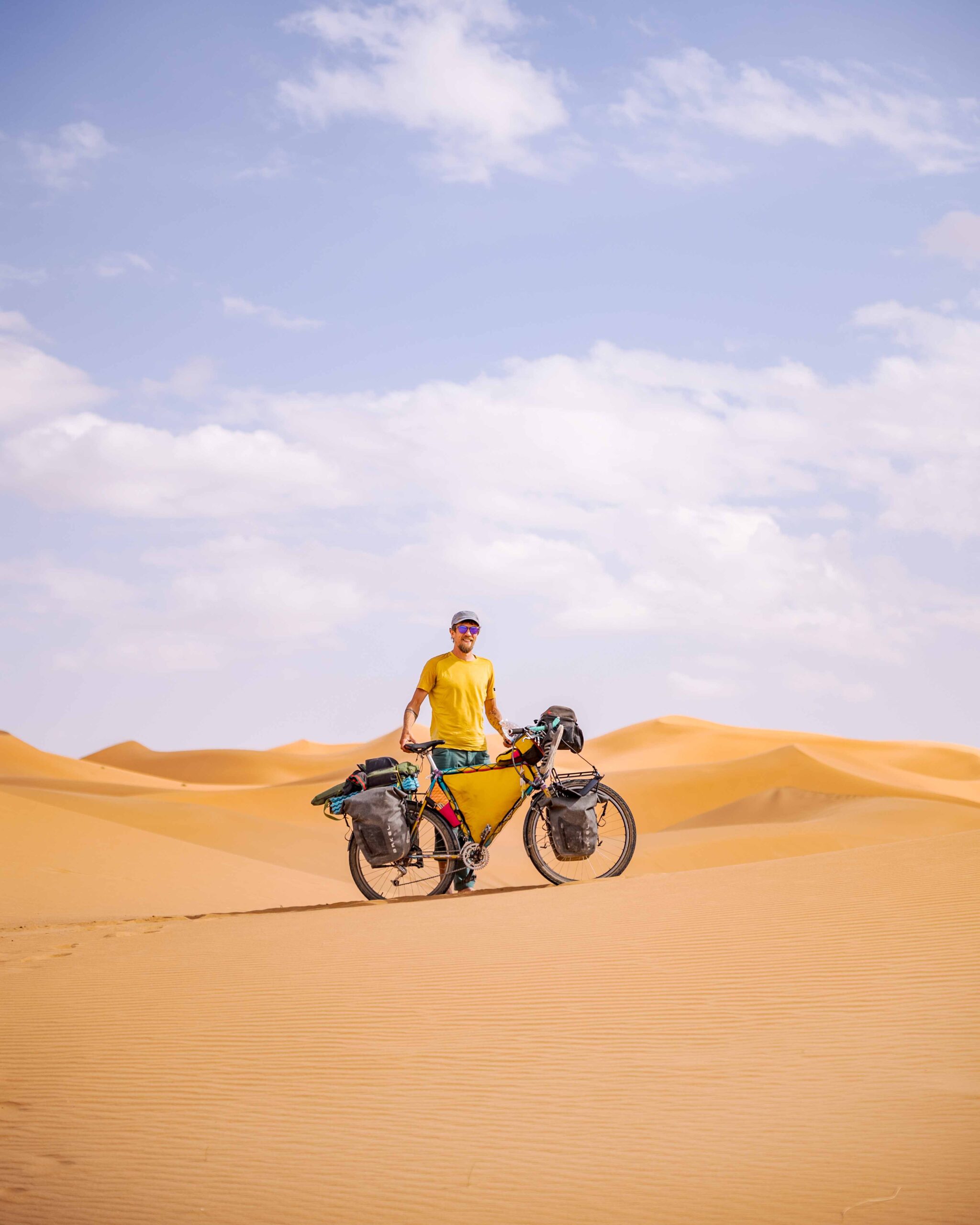
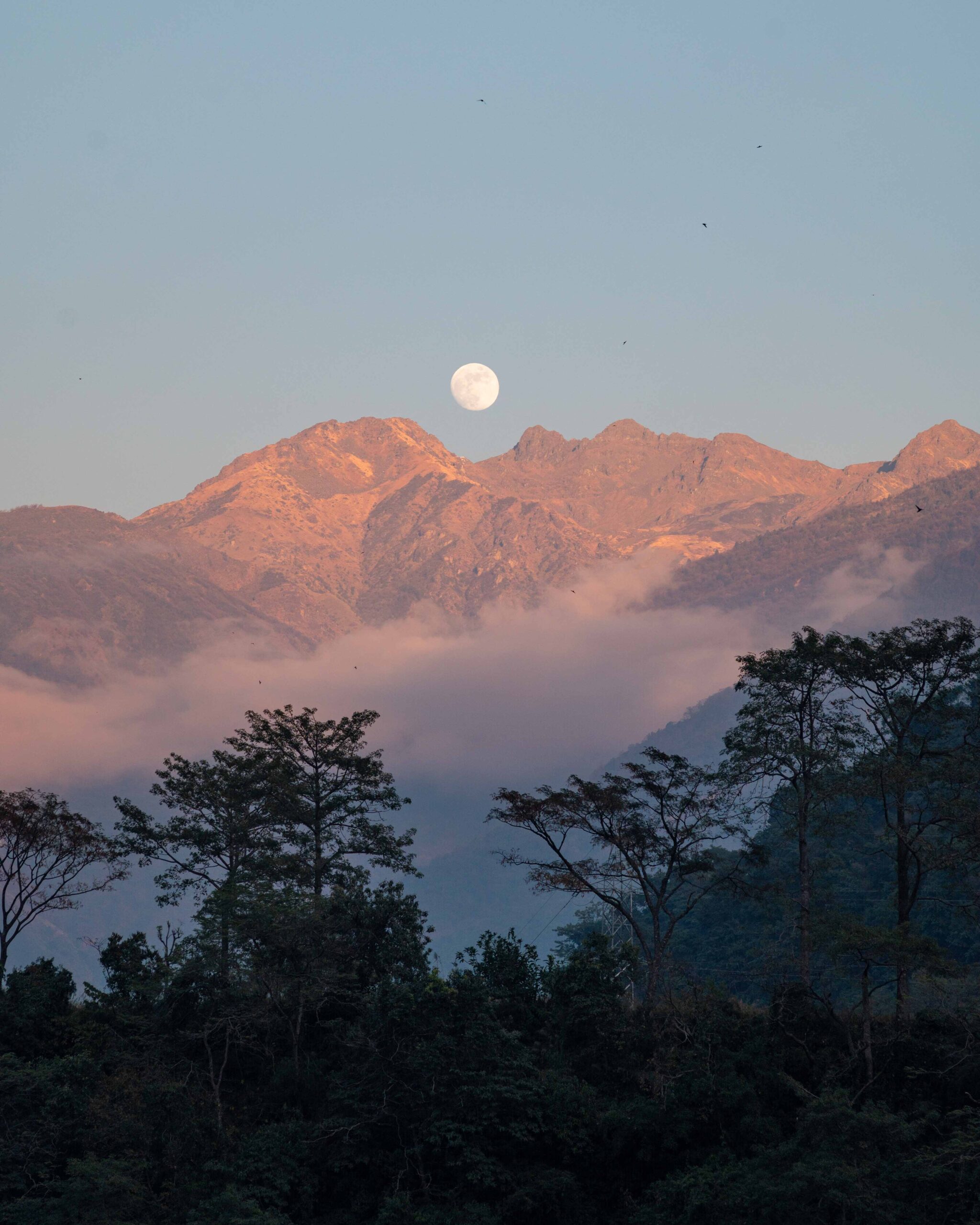
Why did you choose the Kuwahara in steel? What does this bicycle represent for you in your journey and in your life?
I had the idea to go on a big trip 2 years before actually leaving and in that time I was hunting for a bicycle that would perfectly suit my needs. So I started buying old second hand bike frames and fixed them up to find what I was looking for. I did a lot of research in particular about high quality bikes from Japan from the late 80s/early 90s and by that I came across Kuwahara. Somehow they I really like their design and ended up buying 3 frames. 2 are now used by friends and I kept the one that I’m using now. A Kuwahara Cheetah from 1989, 26” with a funky colour vibe. It’s a super reliable frame, rides very nicely and is just a beautiful piece of high craftsmanship. I make a lot of my gear by myself and since I love colours and using them it became like a canvas to express myself. It’s a good companion, almost like an old friend where you share loads of memories with and you know you can count on it.
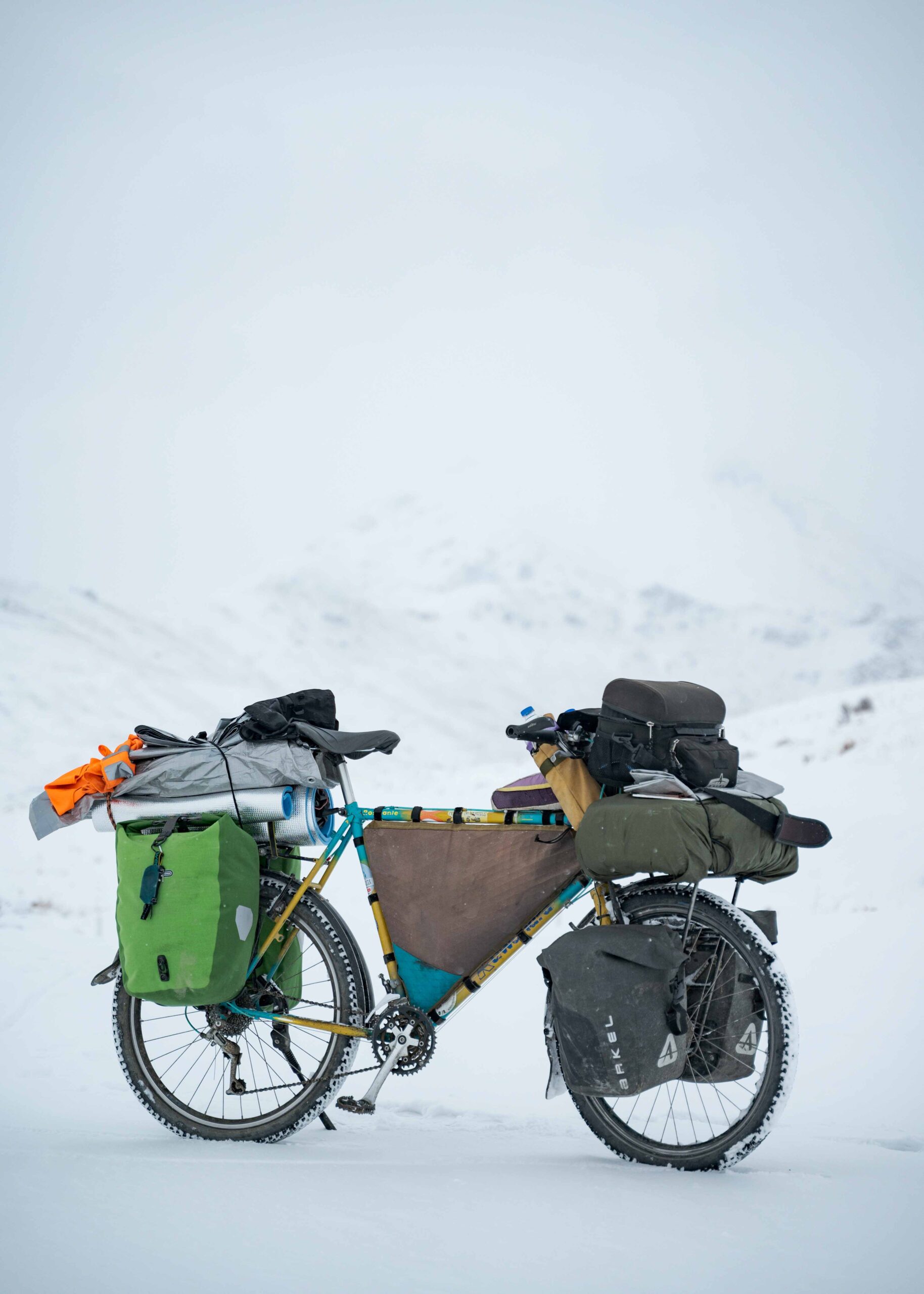
"Choose a good frame with shitty or worn-out components and replace them by yourself. By doing that you’ll learn a lot about the components and how to fix things."
In an era dominated by modern bicycles, what are the benefits of steel for you? Can you share an example of how this bike has made your adventure easier?
Part of my research while building bikes was figuring out that steel bikes are the best for traveling with bigger loads. Aluminium is light but it doesn’t have flexibility and tends to snap before you’d notice any warning signs. Also it requires a different type of welding that isn’t widely spread. Titanium is very strong but too soft and therefore too flexible with heavy loads. It performs nice with light weight setups tho but it’s just ridiculous pricey and it’s nearly impossible to find someone who could weld titanium. Steel is more rigid than Titanium but yet it has the right amount of flexibility. It also tends to bend before it would snap and if something brakes, you can get it fixed in almost every village. The late 80s – mid 90s are the peak period of steel frame building. So there are plenty of beautiful second hand bikes out there that were build with high craftsmanship but cost just very little money. Also I’m a person with an eye for aesthetic and a lugged steel frame is just way more appealing to me than an oversized alloy frame. Kuwahara is just one brand (and my favourite) but others like Koga Miyata, Bridgestone, Panasonic, Nishiki, Centurion, Trek, Marin, Scott, Giant, just to name a few, have been building great frames aswell.
And it’s just enough to know that your bike can handle what ever I can handle, to make to trip easier.
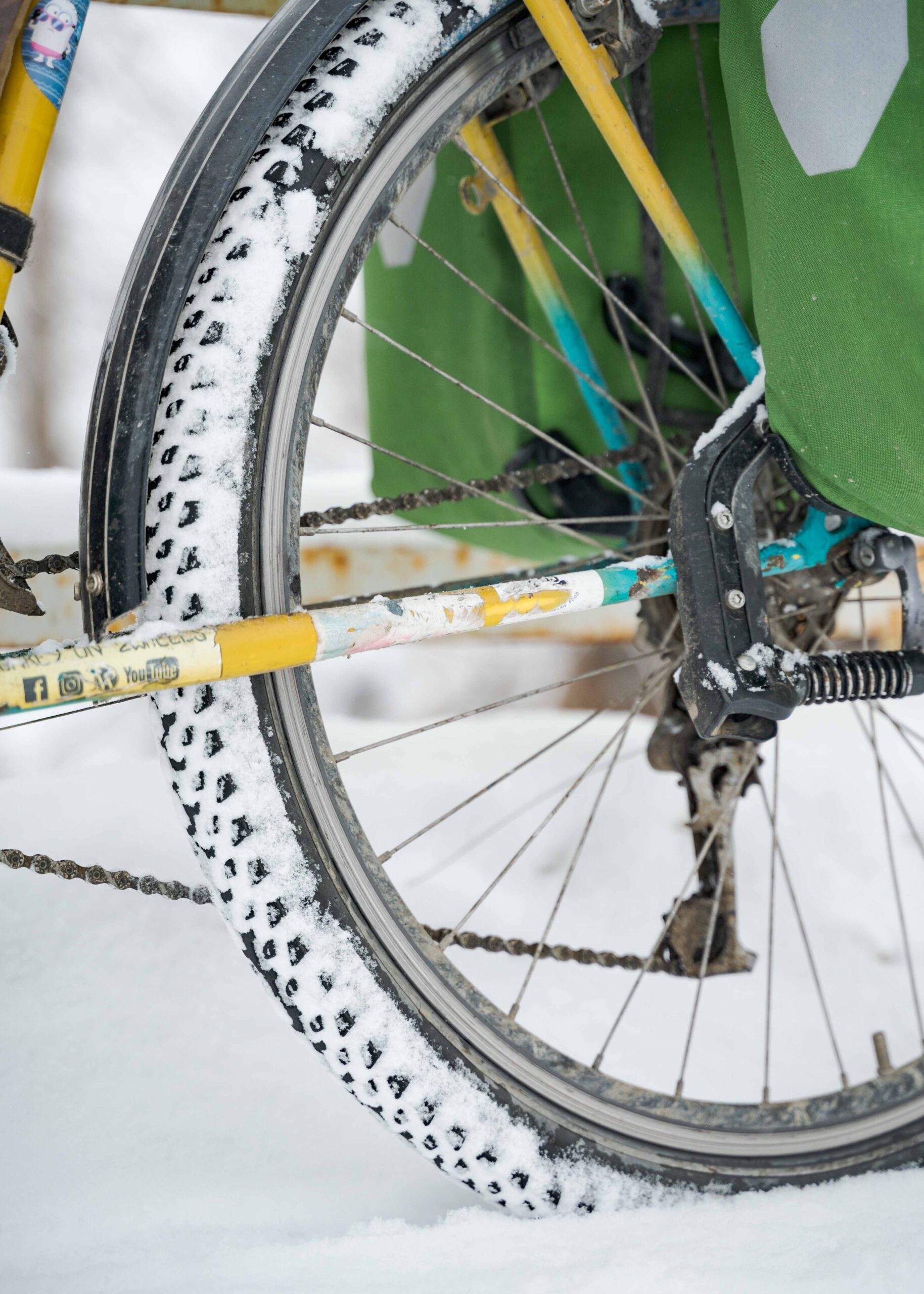
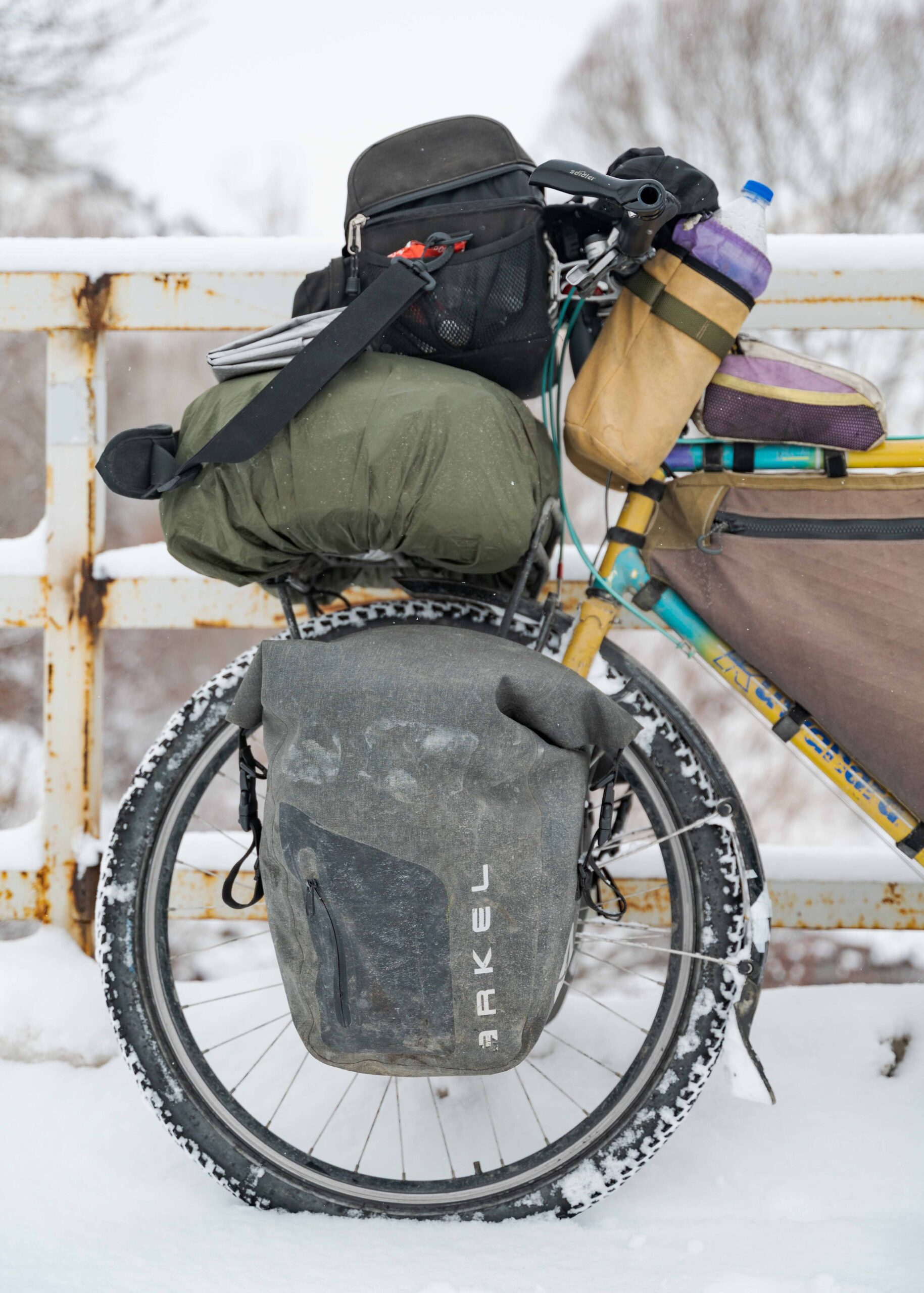
Can you tell us about a time when the ease of repairing your bike saved you in a difficult situation?
When I’m not travelling by bike, I’m at home and live my other life as a musician. Sometimes I use the bike for transportation of gear and people. Every year we play at this one particular festival where the way from the accommodation to the festival area was quite far so I loaded my bike with my band mate on my rear rack + 2 amps, a guitar, a violin and a cajon (yes that possible :D) So that was about 100kg on the rear rack for multiple times. Eventually this caused to break the little part that holds the rack on the dropout. My friend just welded it back temporarily which lasted perfectly. Now recently I went to a welding shop to get it done perfectly again. That’s the only time I had to fix something on the frame. Apart from this the old technology comes very handy because you can find spare parts way easier and things are just build simpler and also longer lasting.
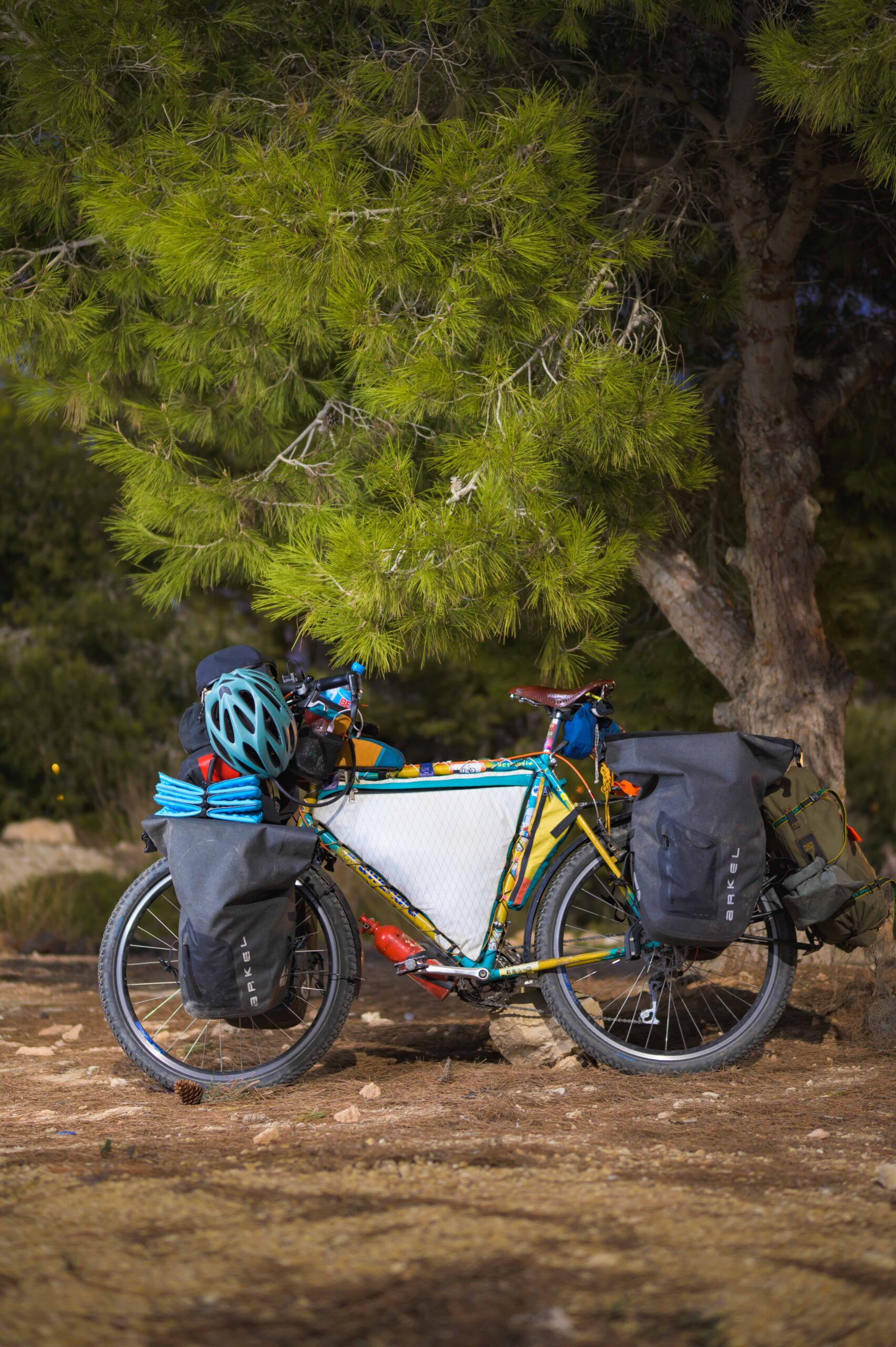
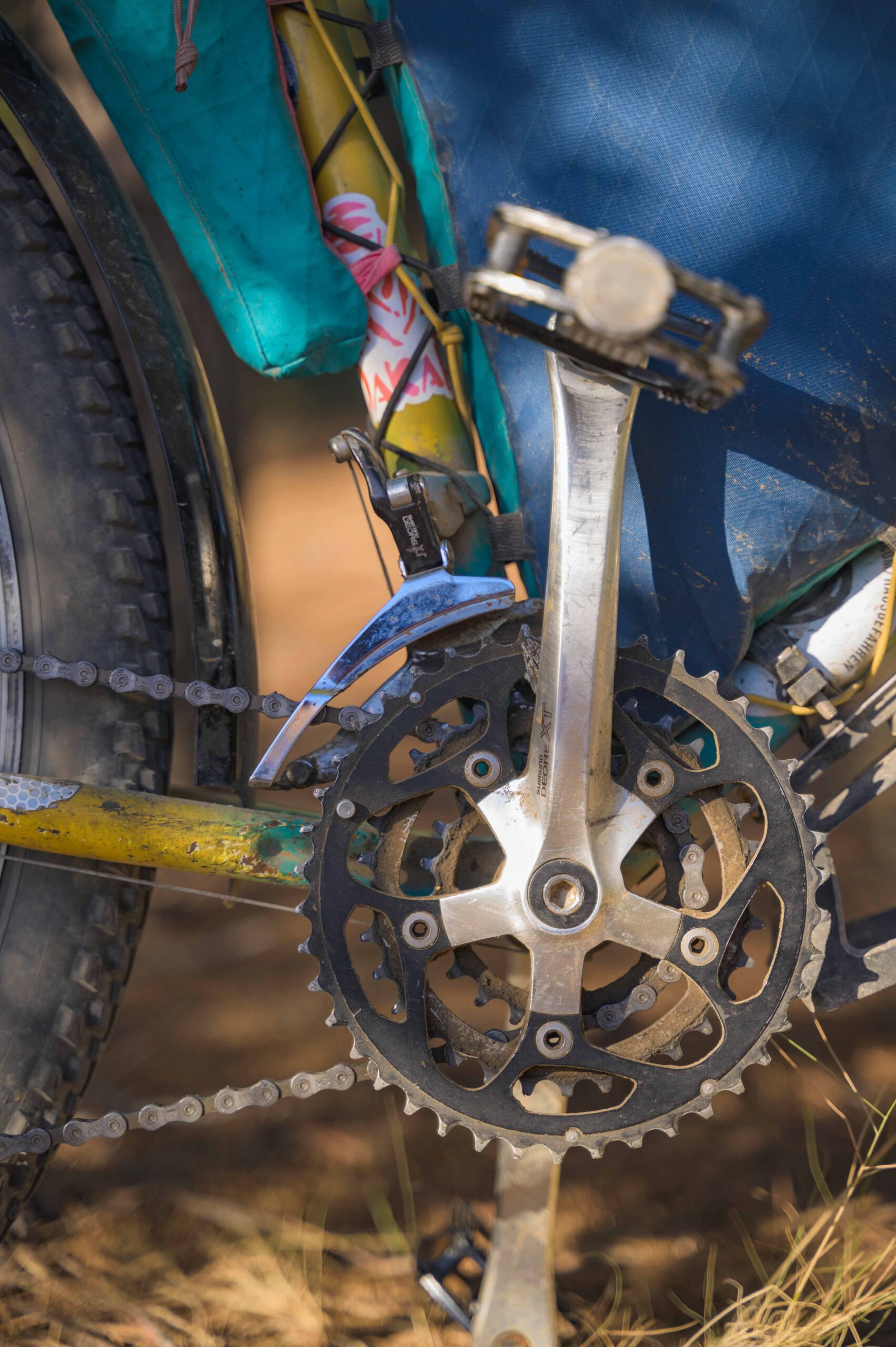
How do you prepare for a bikepacking trip? What are your tricks for optimizing space and weight on your bike?
I don’t prepare much, apart from making the bags to use the space effectively. But I usually tend to bring more stuff than the normal bikepacker. Being a musician is tricky because I kinda need to play every now to stay in practice, so I carry a foldable guitar and a mandolin with me. Also I studied photography so I also want to use my professional camera plus I’m doing YouTube videos which means I need a laptop, tripod, done and so on. I usually just trust my physical ability to handle everything with a big load. So don’t take advice from me. The only really valuable thing here I can say is: get a framebag and stembags that can hold 2×1.5L water bottles and think about what you want from your trip. Is it more about being just on the bike or do you also wanna kinda enjoy the time besides the activity of cycling.
Do you have a memorable story about a special encounter or a place that particularly struck you during your travels?
There are plenty of special moments and they’re all very memorable. But I wanna mention two of them. First the country Iran. The government sucks hard but the people are some of the best on this planet. I was welcomed by the kindest souls everyday and I felt extremely safe there despite all the negativity that connected to the country through media. It’s insanely rich in culture, stunning Landscapes and extremely welcoming people. The second one was one guy who helped me in Nepal. I lost my credit card and didn’t had money to buy food or anything. My friend send me money via Western Union but it was closed that day and as I was standing in front of of the closed shop this young 18 year old guy, his Name is Bhim, approached me and asked if I needed help. I explained him my situation and he invited me for Lunch and gave me 800 rupees (about 6€). That doesnt seem much in first sight but it’s like as I would give 50€. We are still in contact and I told him I want to send him 50€ but he told me to wait with that until there is a moment when he’ll need it. But I’ll be glad to return that to him. It’s literally a circle of Karma.
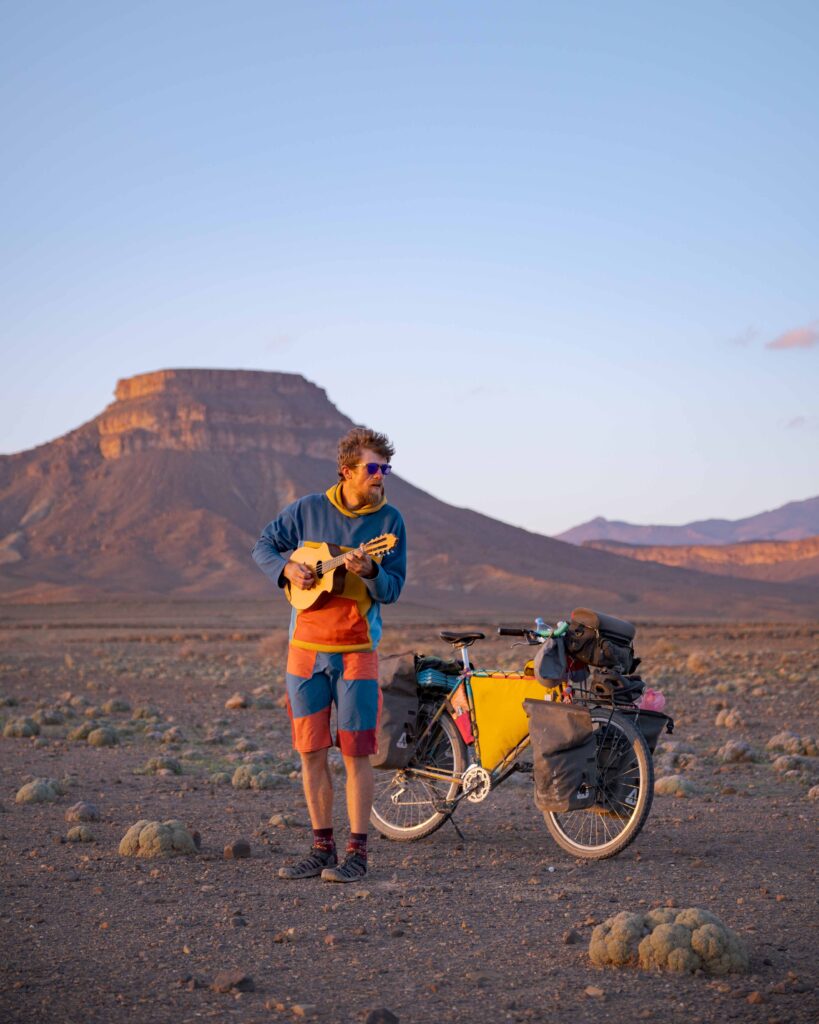
How have these journeys changed you as a person? What lessons have you learned about life and adventure?
Surely it does something to you. Travelling like this teaches you so many things. I have been always very self sufficient but this lifted my trust in my capabilities even higher. I know no matter what situation is ahead, I’ll find a solution. Also you get a lot of different perspectives on life by talking and listening to people from other cultures and believes. You have plenty of time while pedaling to think about all the impressions and you learn to follow the flow and be grateful for that. You can plan your route exactly before setting off but you’ll realise soon it won’t come as planned. Then there is wind an invisible teacher of resistance and patience. There are uphills and downhills that challenge you first mentally and physically and then you get a fun little downhill as a reward. In so many aspects of a biketrip can be found an analogy to, what you could call, real life. This is a very big topic because it’s also on a very philosophical level and while I cycle I very often have philosophical thoughts about everything. Also I’m naturally quite an introvert but while travelling I’m more open because of my curiosity. Also speaking not my mother language (which would be German) is interesting. I believe that you adapt a different personality depending on the situation where you learn that language. My English after school was very bad because I was already daydreaming about philosophical matters most of the time in school and didn’t listen much. So I learned my English while traveling with other people which puts you automatically in a new role.
What message do you want to leave for those dreaming of similar adventures, especially using old-school bicycles?
The hardest part is to start and to stop. Everything in between is in flow and will come naturally. Don’t overthink, trust yourself, your instincts and be open for the world. If you choose an old school bike you’d have a very good base for a sturdy companion. Choose a good frame with shitty or worn out components and replace them by yourself. By doing that you’ll learn a lot about the components and how to fix things. Do everything kinda once to get an idea how it works. Ah and when you cycle, very important, have fun and enjoy the scenery 😀
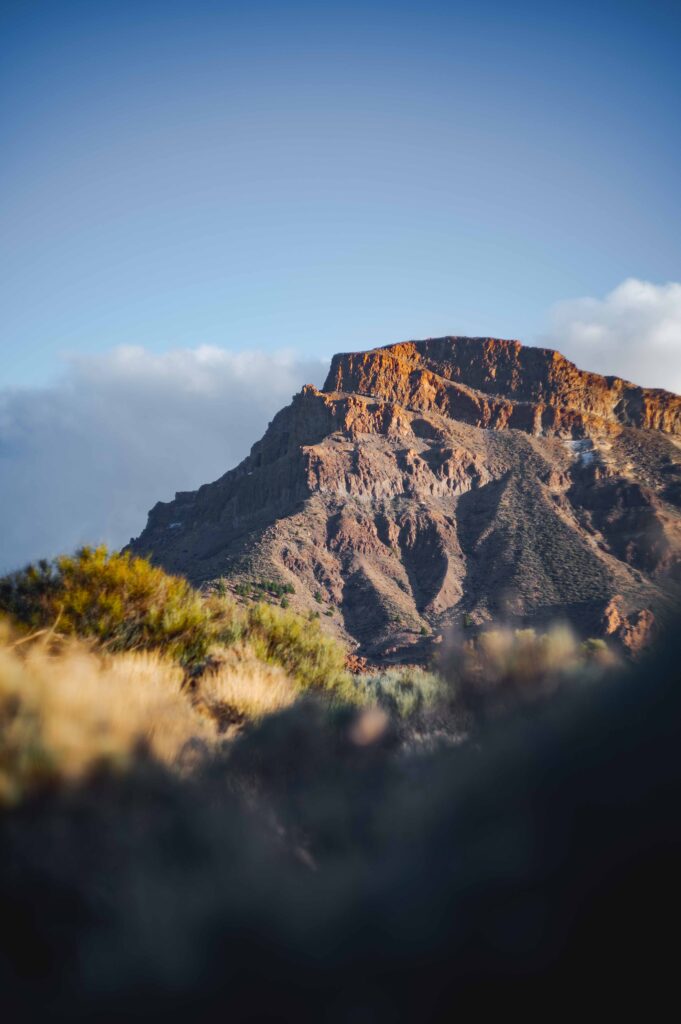
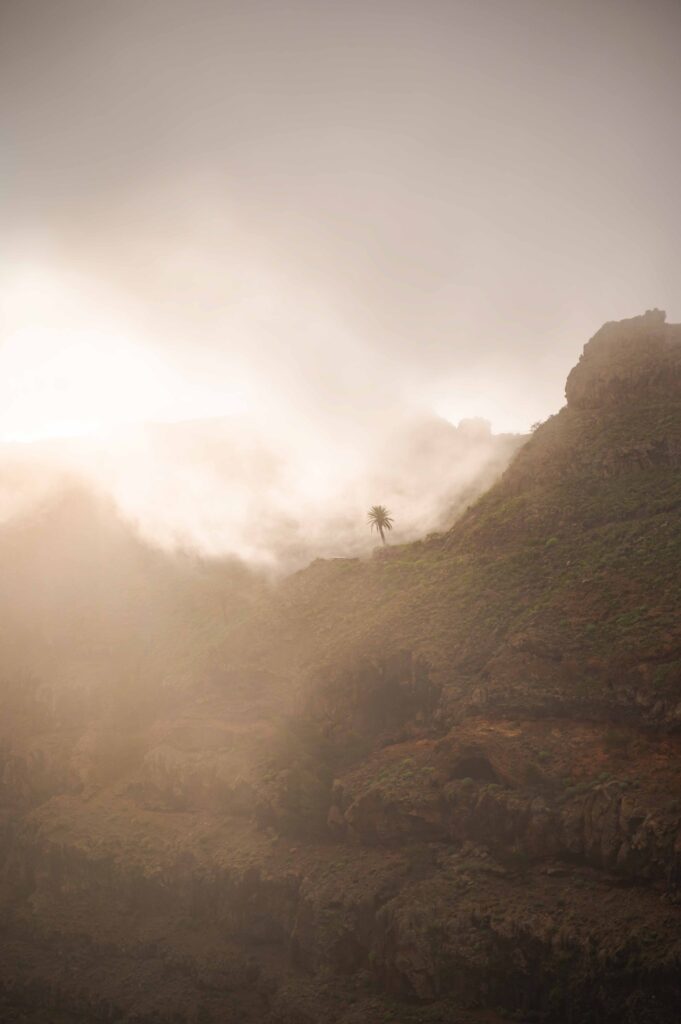
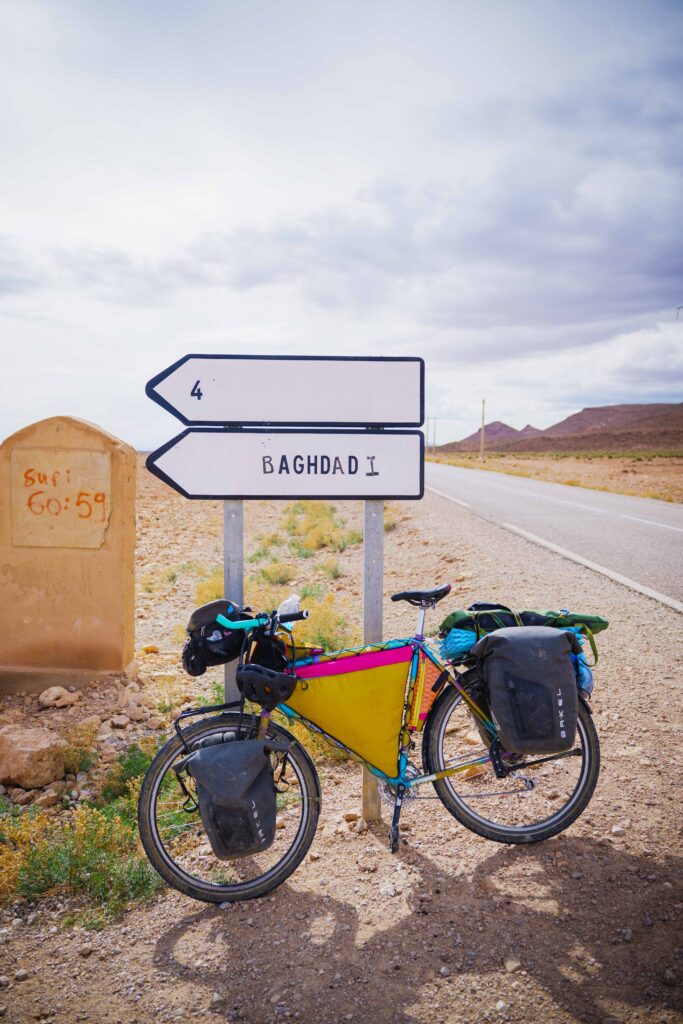
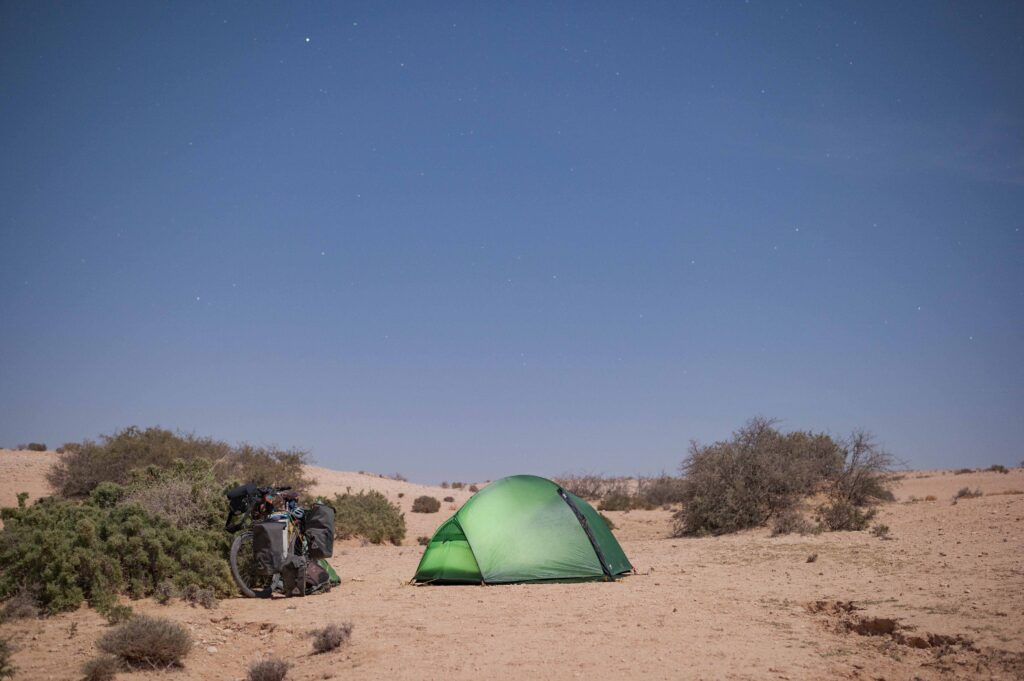
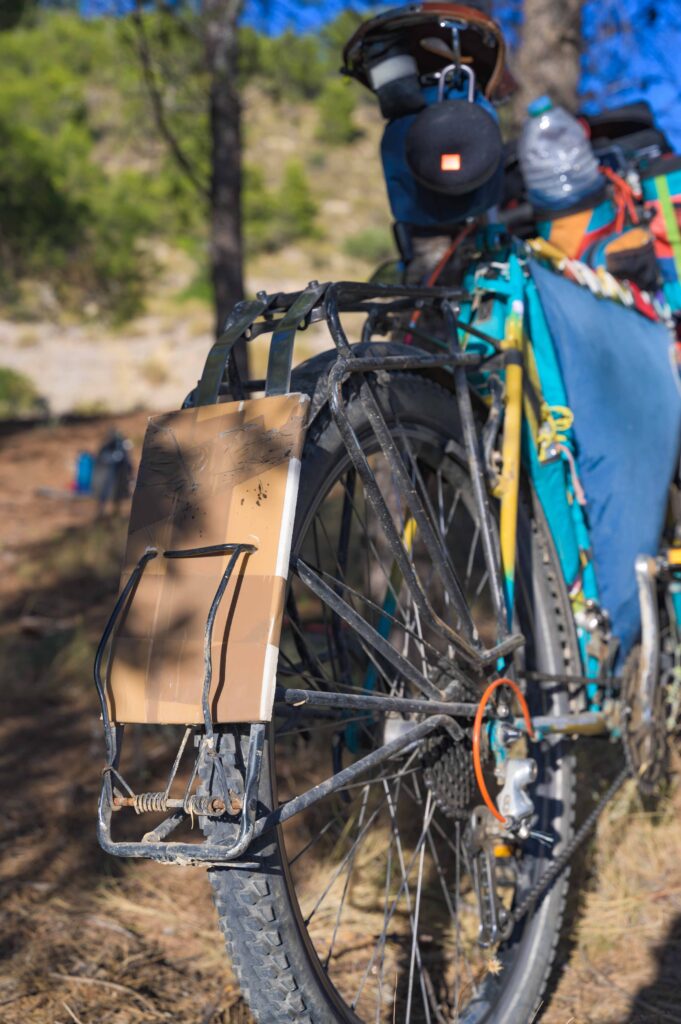
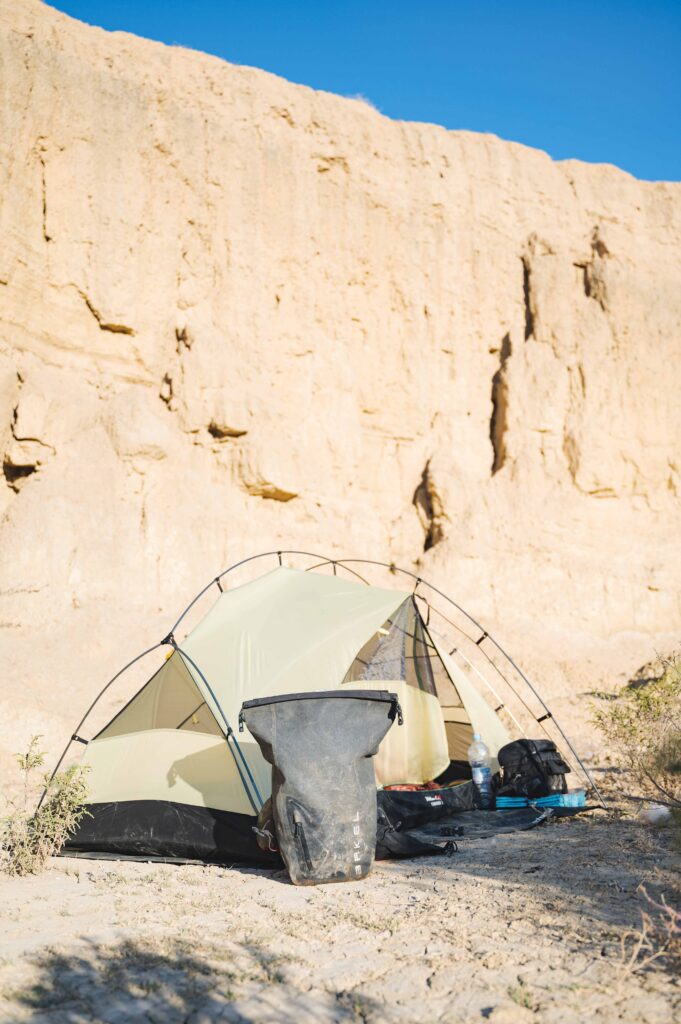
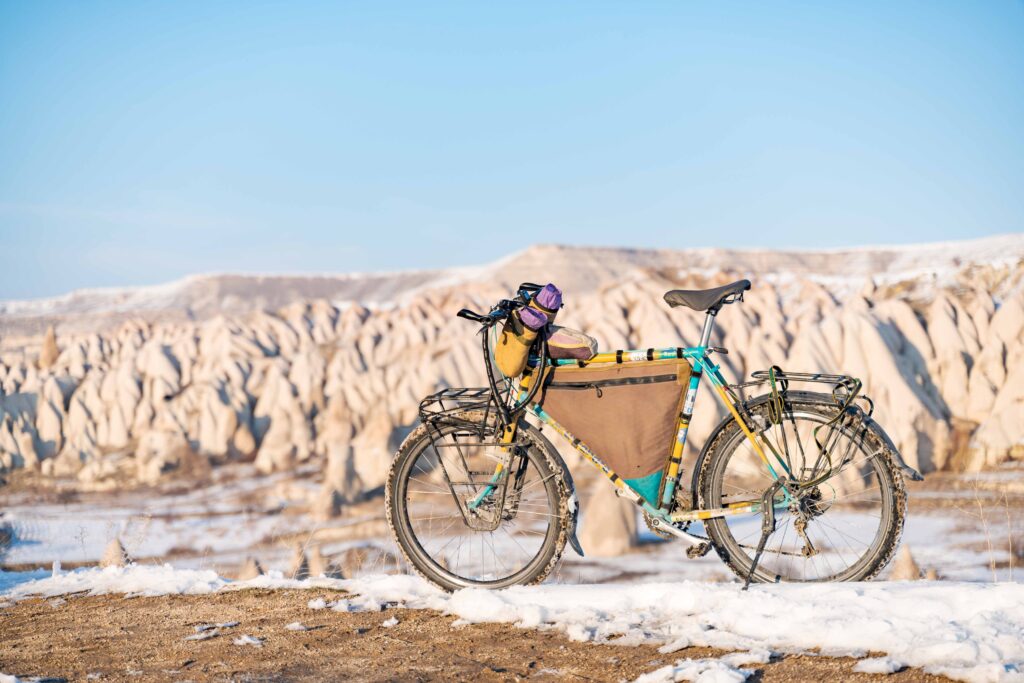
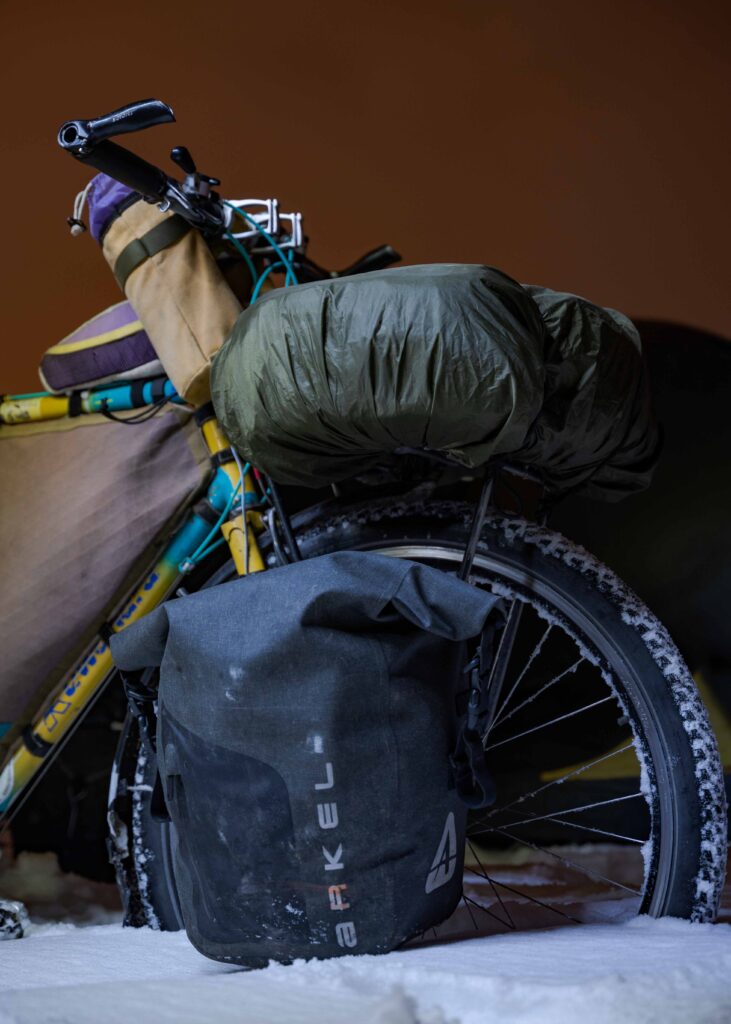
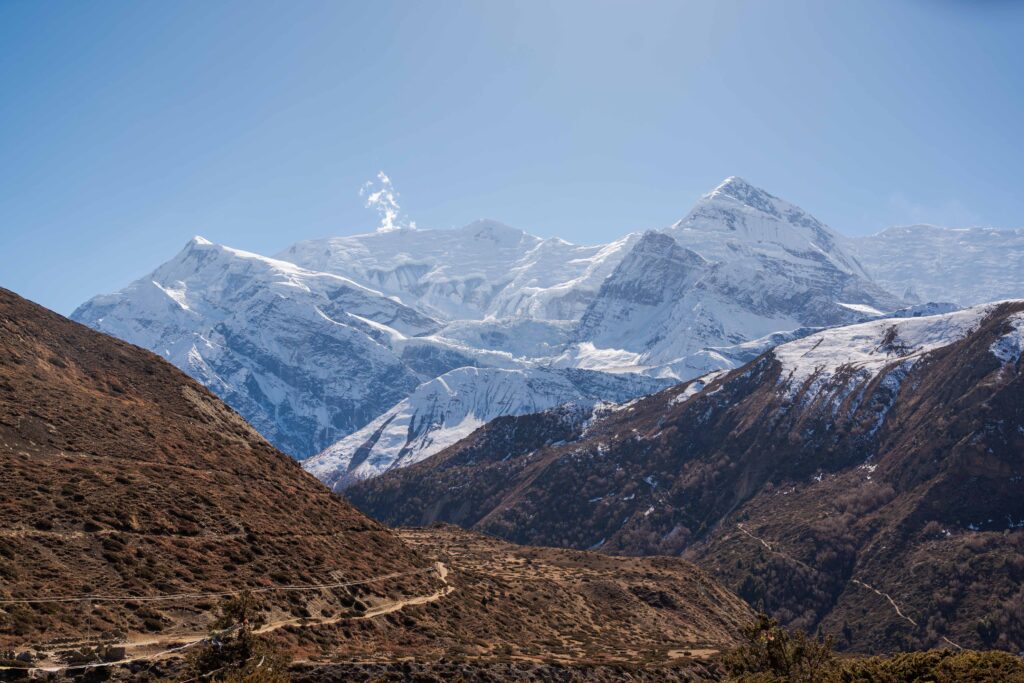
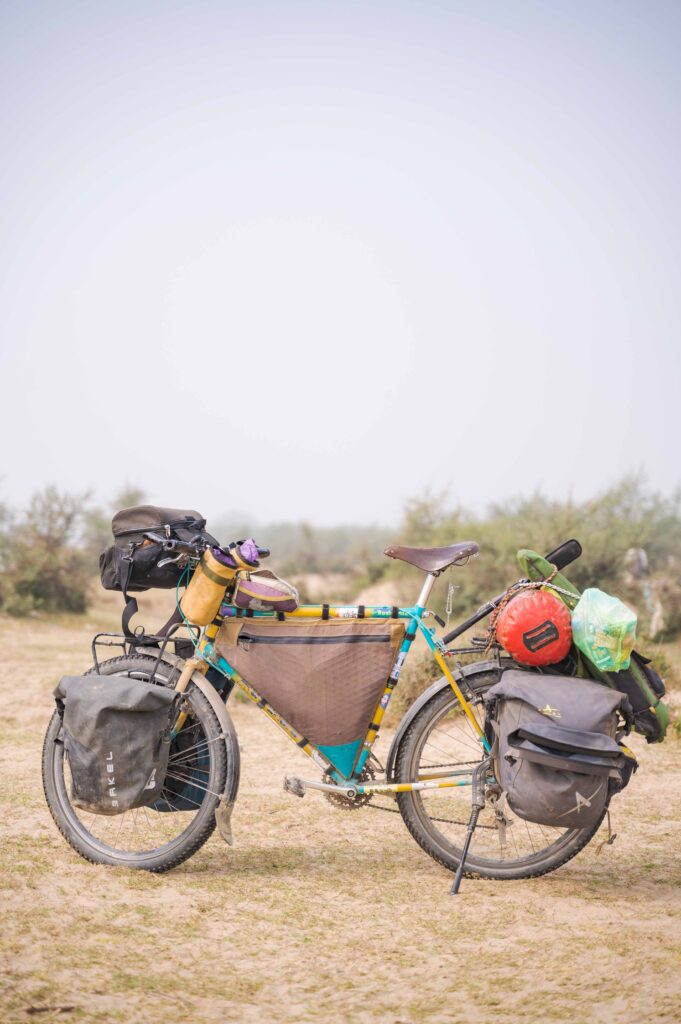
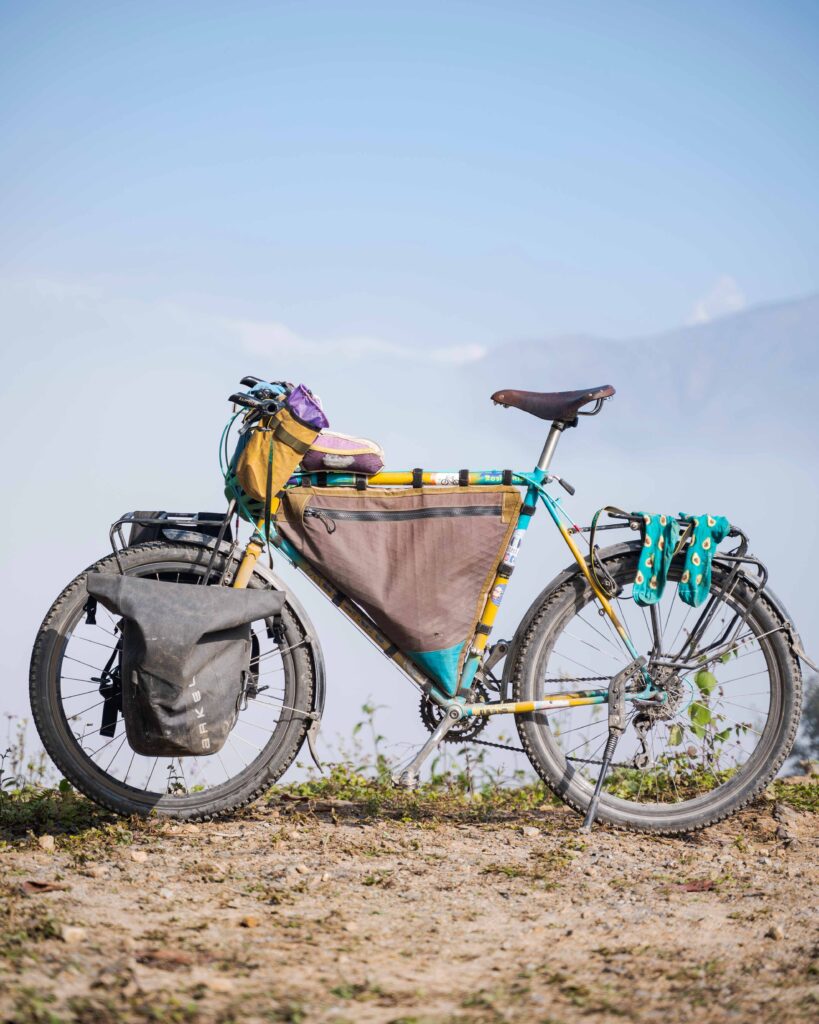
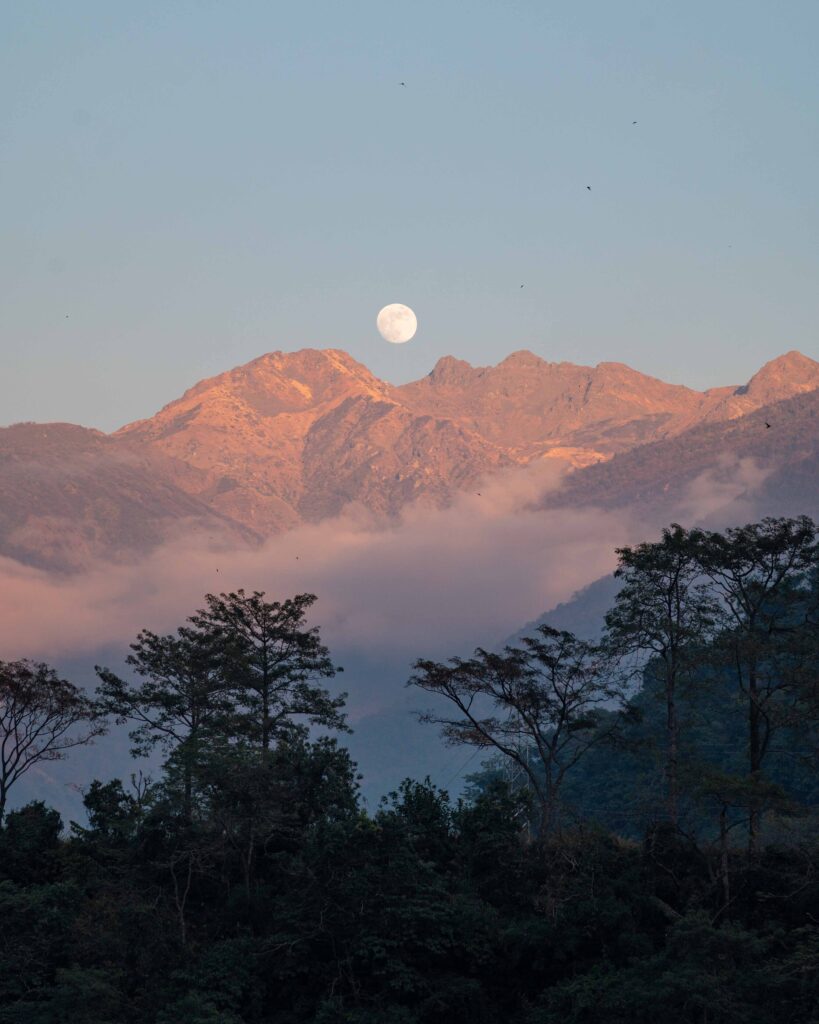
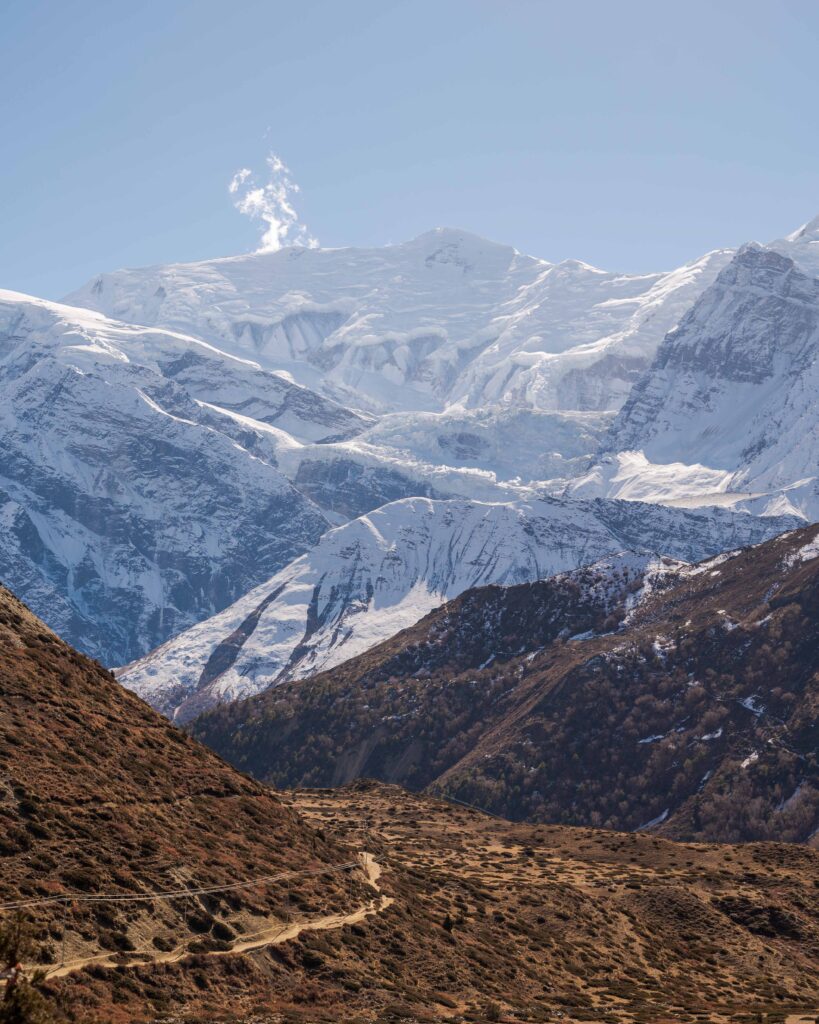
Talking with Eric has been an inspiring reminder of how the simplest things, can lead to extraordinary adventures and profound life lessons. His story embodies a sense of freedom, resilience, and creativity that resonates deeply with the spirit of exploration. Thank you, Eric, for sharing your experiences and for reminding us to keep pedaling forward, no matter the challenges.

